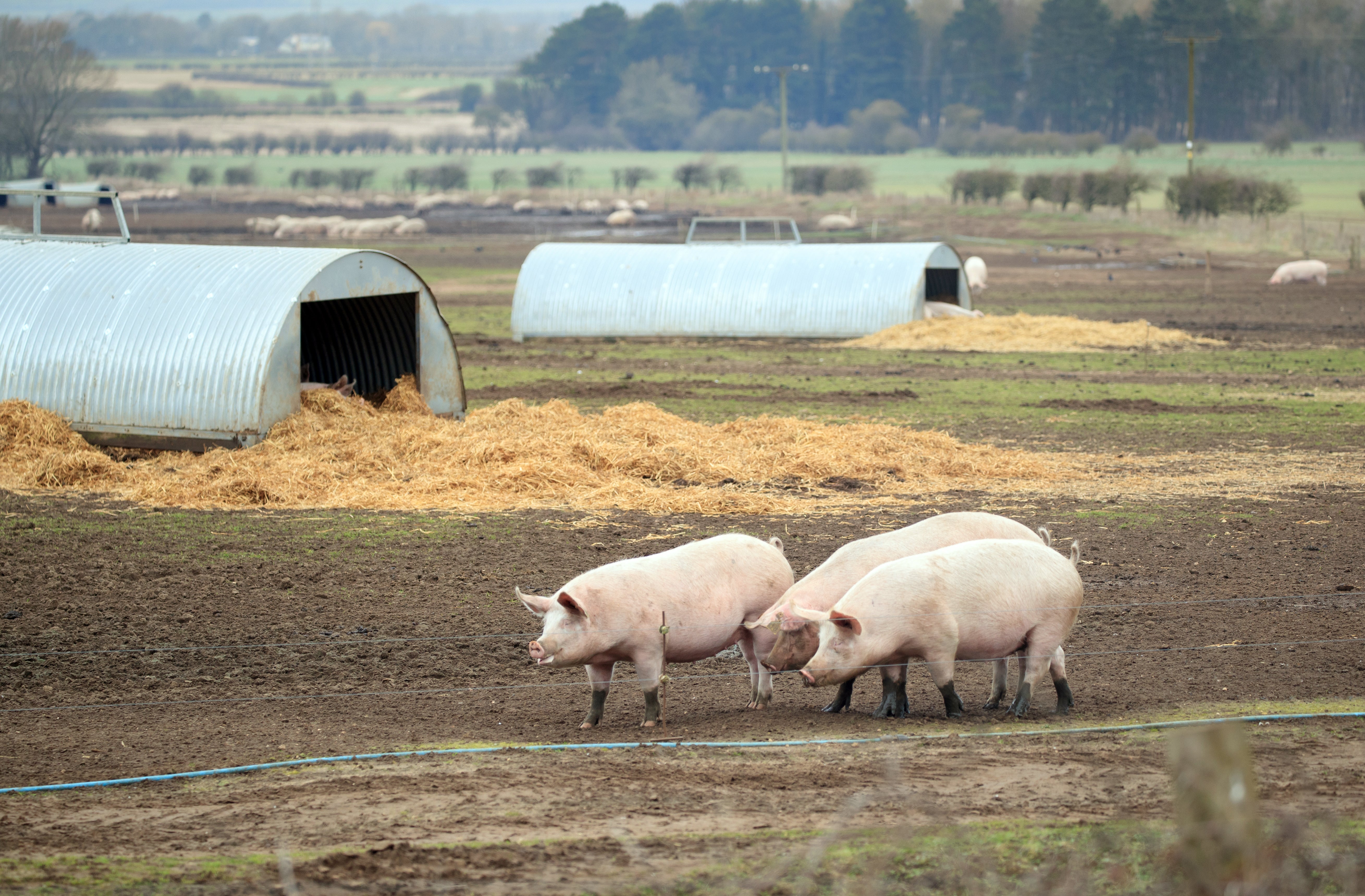Highly antibiotic-resistant MRSA strain that arose in pigs ‘can jump to humans’
The strain has become the dominant type of MRSA in European livestock, probably due to widespread antibiotic use in pig farming, researchers say.

A highly antibiotic-resistant strain of the superbug MRSA that has emerged in livestock over the last 50 years can jump to humans, a new study suggests.
The strain, CC398, has become the dominant type of MRSA in European livestock – probably due to widespread antibiotic use in pig farming – and is also a growing cause of human infections, researchers say.
CC398 has maintained its antibiotic resistance over decades in pigs and other livestock, the study found.
It is also capable of rapidly adapting to human hosts while maintaining its antibiotic resistance.
Historically high levels of antibiotic use may have led to the evolution of this highly antibiotic resistant strain of MRSA on pig farms
Scientists say the findings highlight the potential threat the strain poses to public health.
It has been associated with increasing numbers of human infections, both in people who have and have not had direct contact with farm animals.
Dr Gemma Murray is a lead author of the study, previously in the University of Cambridge’s Department of Veterinary Medicine and now at the Wellcome Sanger Institute.
She said: “Historically, high levels of antibiotic use may have led to the evolution of this highly antibiotic resistant strain of MRSA on pig farms.”
Dr Murray added: “We found that the antibiotic resistance in this livestock-associated MRSA is extremely stable – it has persisted over several decades, and also as the bacteria has spread across different livestock species.”
While antibiotic use in European livestock is much lower than it used to be, the researchers say ongoing reductions on pig farms – due to recent policy changes – are likely to have a limited impact because the strain is so stable.
The strain is most commonly associated with pigs but it is also found across a broad range of species.
Researchers say its rise has been particularly evident in Danish pig farms where the proportion of MRSA-positive herds has increased from less than 5% in 2008 to 90% in 2018.
MRSA does not cause disease in pigs.
Dr Lucy Weinert from the University of Cambridge’s Department of Veterinary Medicine and senior author of the paper, said: “Understanding the emergence and success of CC398 in European livestock and its capacity to infect humans is vitally important in managing the risk it poses to public health.”
MRSA – methicillin resistant Staphylococcus aureus – was first identified in human patients in 1960.
Due to its resistance to antibiotics it is much harder to treat than other bacterial infections and the World Health Organisation now considers it one of the world’s greatest threats to human health.
The research, funded by Wellcome, the Medical Research Council and the Raymond and Beverly Sackler Fund, is published in the journal eLife.
Bookmark popover
Removed from bookmarks